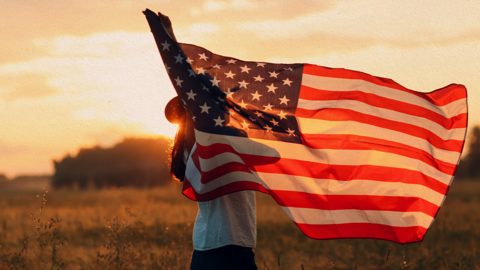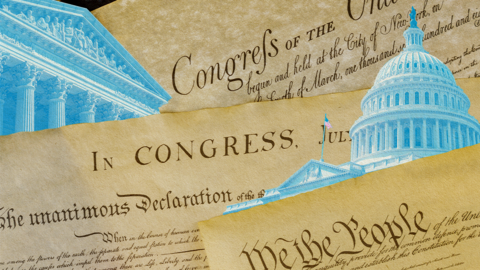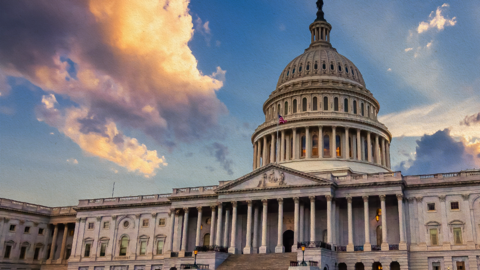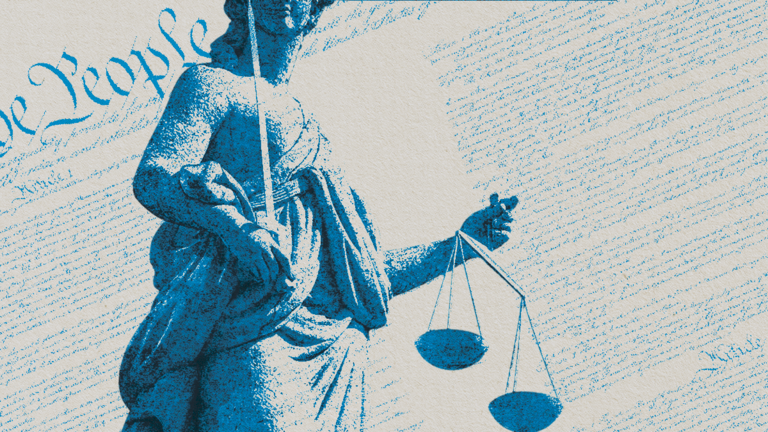By Colleen Shogan, Stand Together Trust senior fellow and former archivist of the United States
When Justice Sandra Day O’Connor retired from the Supreme Court at the age of 76, she didn’t retire from public engagement. She called what she did next one of her greatest contributions to civic life.
After serving in all three branches of the government, including 25 years on the Supreme Court, O’Connor started iCivics, a nonprofit dedicated to civics education that reaches more than 9 million children. But it was her commitment to civic engagement, even in retirement, that revealed something more.
Civic engagement is a life skill. It not only makes communities better but also improves us as individuals through its fundamental lessons about collaboration, teamwork, and tolerance.
In a way, we should view being actively engaged in our community as critical to our own success at work and in life. The need for this type of renewed civic engagement has never been more urgent, as Americans feel divided and knowledge about our system is waning in younger generations.
Constitution Day: A time to reconnect with civics and being American
Each year on September 17, our country marks Constitution Day and Citizenship Day, a day set aside to reflect on the rights and responsibilities of being a U.S. citizen. While many schools use this day to reinforce the foundational principles of our republican democracy, Constitution Day also offers a unique moment for broader reflection on civic engagement.
Today, the need for that education is urgent. A 2024 study from the U.S. Chamber of Commerce Foundation found that only 25% of Americans said they are “very confident” they could explain how our system of government works, even though more than two-thirds said they studied civics in high school. And in 2022, the National Assessment Governing Board reported a decline in eighth-grade proficiency in civics, with less than one-third meeting the standard of proficiency — meaning that many of our nation’s students don’t know basic facts about our system of government.
At its core, civics is about problem-solving. A strong civics education fosters agency: It teaches individuals how systems work, where and when to exert influence, and how to collaborate effectively to achieve meaningful outcomes. It not only teaches the theory of American government, but the practical application and execution.
In a time when participation in the democratic process can feel distant for many, aside from exercising the right to vote, we must recognize that civic responsibility isn’t solely limited to understanding government mechanics. It also involves learning how we engage with each other as citizens. Empathy, humility, and mutual respect are critical components of civic life, referred to by political theorist Alexis de Tocqueville as the essential “habits of the heart” that enable democracy in America to function.
Sign up for the Stand Together newsletter and get stories, ideas, and advice from changemakers to help you tackle America’s biggest problems.
How civics plays out in daily life
Civics is not only about understanding how government works — it’s about using that knowledge to create meaningful change in communities and exercising the principles of self-government. Often, the firsthand experience of a problem compels someone into action to create that change.
Take, for instance, students Elijah Falkenstein and Zander Bauer from Staples High School in Connecticut. They cofounded the Make Our Schools Safe club to advocate for Alyssa’s Law, a measure requiring silent alarms to be installed in schools to notify police and first responders during emergencies.
These students didn’t just learn about government in a textbook — they applied that learning to address a real, immediate issue.
They spoke at a legislative hearing to express their desire for the law’s adoption across the state, with Falkenstein saying, “In this generation, I have never fully felt safe at school,” emphasizing how vital these safety measures are for his peers.
The state House and Senate passed legislation, signed by the governor, that adopted the core principles of Alyssa’s Law, demonstrating that civic knowledge and engagement can lead to meaningful changes in self-government. By learning how to navigate institutions, build coalitions, and advocate for policies that matter to them, students like Falkenstein and Bauer are setting an example for others in their generation.
Even the most brilliant person needs to collaborate with others to accomplish his or her goals. That’s why cultivating the habits of civic engagement — mutual respect, principled courage, patience — must accompany learning about governmental systems.
A better future: Civic engagement as a way of life
To engage effectively, citizens must understand the rules of the game. Without a grasp of how government functions and how to interact with institutions, efforts to address societal problems can easily become frustrating or fruitless.
Resources like the Bill of Rights Institute, Khan Academy’s Constitution 101 course, and More Perfect offer easy-to-access resources for education, not just in the classroom but also in workplaces, communities, and for individual learning.
But civics must be a way of life for all of us. We benefit when we collectively operate with shared understanding and respect. It may not be easy, but like any life skill, it takes practice.
“Do the best you can in every task, no matter how unimportant it may seem at the time,” said Justice O’Connor. “No one learns more about a problem than the person at the bottom.”
Stand Together Trust provides funding and strategic capabilities to innovators, scholars, and social entrepreneurs to develop new and better ways to tackle America’s biggest problems.
Learn more about Stand Together’s efforts to defend America’s constitutionally limited government, and explore ways you can partner with us.

She protected the Declaration of Independence and thinks we all should read it to our kids.

Exploring the nationwide crisis of Sixth Amendment violations and the push for reform.

A landmark Supreme Court decision is bringing a return to federalism.

How the Supreme Court decision affects Congress’ job.
